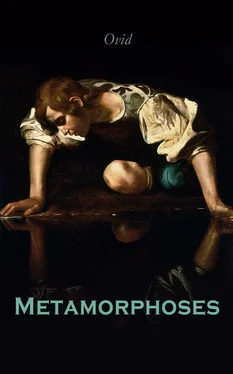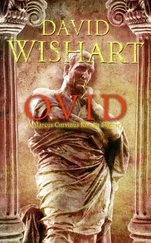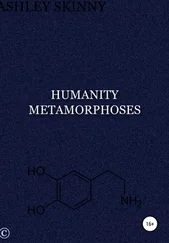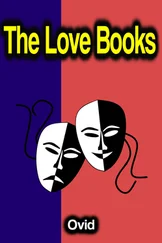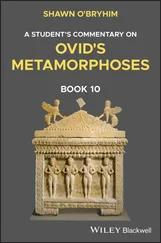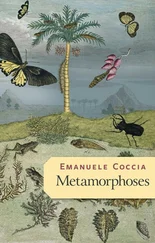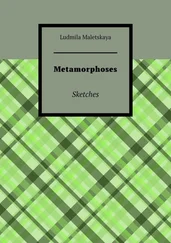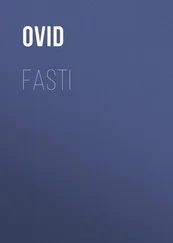Ovid - Metamorphoses
Здесь есть возможность читать онлайн «Ovid - Metamorphoses» — ознакомительный отрывок электронной книги совершенно бесплатно, а после прочтения отрывка купить полную версию. В некоторых случаях можно слушать аудио, скачать через торрент в формате fb2 и присутствует краткое содержание. Жанр: unrecognised, на английском языке. Описание произведения, (предисловие) а так же отзывы посетителей доступны на портале библиотеки ЛибКат.
- Название:Metamorphoses
- Автор:
- Жанр:
- Год:неизвестен
- ISBN:нет данных
- Рейтинг книги:3 / 5. Голосов: 1
-
Избранное:Добавить в избранное
- Отзывы:
-
Ваша оценка:
- 60
- 1
- 2
- 3
- 4
- 5
Metamorphoses: краткое содержание, описание и аннотация
Предлагаем к чтению аннотацию, описание, краткое содержание или предисловие (зависит от того, что написал сам автор книги «Metamorphoses»). Если вы не нашли необходимую информацию о книге — напишите в комментариях, мы постараемся отыскать её.
Metamorphoses — читать онлайн ознакомительный отрывок
Ниже представлен текст книги, разбитый по страницам. Система сохранения места последней прочитанной страницы, позволяет с удобством читать онлайн бесплатно книгу «Metamorphoses», без необходимости каждый раз заново искать на чём Вы остановились. Поставьте закладку, и сможете в любой момент перейти на страницу, на которой закончили чтение.
Интервал:
Закладка:
Then, indeed, Phaëton beholds the world set on fire on all sides, and he cannot endure heat so great, and he inhales with his mouth scorching air, as though from a deep furnace, and perceives his own chariot to be on fire. And neither is he able now to bear the ashes and the emitted embers; and, on every side, he is involved in heated smoke. Covered with a pitchy darkness, he knows not whither he is going, nor where he is, and is hurried away at the pleasure of the winged steeds. They believe that it was then that the nations of the Æthiopians contracted their black hue, 28the blood being attracted into the surface of the body. Then was Libya 29made dry by the heat, the moisture being carried off; then, with dishevelled hair, the Nymphs lamented the springs and the lakes. Bœotia bewails Dirce, 30Argos Amymone, 31and Ephyre 32the waters of Pirene. Nor do rivers that have got banks distant in situation, remain secure ; Tanais 33smokes in the midst of its waters, and the aged Peneus, and Teuthrantian Caïcus, 34and rapid Ismenus, 35with Phocean Erymanthus, 36and Xanthus 37again to burn, and yellow Lycormas, 38and Mæander, 39which sports with winding streams, and the Mygdonian Melas, 40and the Tænarian Eurotas. 41The Babylonian Euphrates, too, was on fire, Orontes 42was in flames, and the swift Thermodon 43and Ganges, 44and Phasis, 45and Ister. 46Alpheus 47boils; the banks of Spercheus burn; and the gold which Tagus 48carries with its stream, melts in the flames. The river birds too, which made famous the Mæonian 49banks of the river with their song, grew hot in the middle of Caÿster. The Nile, affrighted, fled to the remotest parts of the earth, and concealed his head, which still lies hid; his seven last mouths are empty, become seven mere channels, without any stream. The same fate dries up the Ismarian rivers , Hebrus together with Strymon, 50and the Hesperian 51streams, the Rhine, and the Rhone, and the Po, and the Tiber, to which was promised the sovereignty of the world.
All the ground bursts asunder; and through the chinks, the light penetrates into Tartarus, and startles the Infernal King with his spouse. The Ocean too, is contracted, and that which lately was sea, is a surface of parched sand; and the mountains which the deep sea had covered, start up and increase the number of the scattered Cyclades. 52The fishes sink to the bottom, and the crooked Dolphins do not care to raise themselves on the surface into the air, as usual. The bodies of sea calves float lifeless on their backs, on the top of the water. The story, too, is, that even Nereus himself, and Doris and their daughters, lay hid in the heated caverns. Three times had Neptune ventured, with a stern countenance, to thrust his arms out of the water; three times he was unable to endure the scorching heat of the air. However, the genial Earth, as she was surrounded with sea, amid the waters of the main, and the springs, dried up on every side, which had hidden themselves in the bowels of their cavernous parent, burnt-up, lifted up her all-productive face 53as far as her neck, and placed her hands to her forehead, and shaking all things with a vast trembling, she sank down a little, and retired below the spot where she is wont to be, and thus she spoke, with a parched voice: “O sovereign of the Gods, if thou approvest of this, if I have deserved it, why do thy lightnings linger? Let me, if doomed to perish by the force of fire, perish by thy flames; and alleviate my misfortune, by being the author of it . With difficulty, indeed, do I open my mouth for these very words;” (the vapor had oppressed her utterance.) “Behold my scorched hair, and such a quantity of ashes over my eyes, so much too , over my features. And dost thou give this as my recompense? this, as the reward of my fertility and of my duty, in that I endure wounds from the crooked plough and harrows, and am harassed all the year through? In that I supply green leaves for the cattle, and corn, a wholesome food for mankind, and frankincense for yourselves? But still, suppose that I am deserving of destruction, why have the waves deserved this ? Why has thy brother deserved it? Why do the seas, delivered to him by lot, decrease, and why do they recede still further from the sky? But if regard for neither thy brother nor for myself influences thee, still have consideration for thy own skies; look around, on either side, how each pole is smoking; if the fire shall injure them, thy palace will fall in ruins. See! Atlas 54himself is struggling, and hardly can he bear the glowing heavens on his shoulders. If the sea, if the earth perishes, if the palace of heaven, we are thrown 55into the confused state of ancient chaos. Save it from the flames, if aught still survives, and provide for the preservation of the universe.”
Thus spoke the Earth; nor, indeed, could she any longer endure the vapor, nor say more; and she withdrew her face within herself, and the caverns neighboring to the shades below.
EXPLANATION.
If we were to regard this fable solely as an allegory intended to convey a moral, we should at once perceive that the adventure of Phaëton represents the wilful folly of a rash young man, who consults his own inclination, rather than the dictates of wisdom and prudence. Some ancient writers tell us that Phaëton was the son of Phœbus and Clymene, while others make the nymph Rhoda to have been his mother. Apollodorus, following Hesiod, says that Hersa, the daughter of Cecrops, king of Athens, was the mother of Cephalus, who was carried away by Aurora; which probably means that he left Greece for the purpose of settling in the East. Cephalus had a son named Tithonus, the father of Phaëton. Thus Phaëton was the fourth in lineal descent from Cecrops, who reigned at Athens about 1580, B.C. The story is most probably based upon the fact of some excessive heat that happened in his time. Aristotle supposes that at that period flames fell from heaven, which ravaged several countries. Possibly the burning of the cities of the plain, or the stay of the sun in his course at the command of Joshua, may have been the foundation of the story. St. Chrysostom suggests that it is based upon an imperfect version of the ascent of Elijah in a chariot of fire; that name, or rather ‘Elias,’ the Greek form of it, bearing a strong resemblance to Ἥλιος, the Greek name of the sun. Vossius suggests that this is an Egyptian history, and considers the story of the grief of Phœbus for the loss of his son to be another version of the sorrows of the Egyptians for the death of Osiris. The tears of the Heliades, or sisters of Phaëton, he conceives to be identical with the lamentations of the women who wept for the death of Thammuz. The Poet, when he tells us that Phaëton abandoned his chariot on seeing The Scorpion, probably intends to show that the event of which he treats happened in the month in which the sun enters that sign.
Plutarch and Tzetzes tell us that Phaëton was a king of the Molossians, who drowned himself in the Po; that he was a student of astronomy, and foretold an excessive heat which happened in his reign, and laid waste his kingdom. Lucian, also, in his Discourse on Astronomy, gives a similar explanation of the story, and says that this prince dying very young, left his observations imperfect, which gave rise to the fable that he did not know how to drive the chariot of the sun to the end of its course.
FABLE II.
Jupiter, to save the universe from being consumed, hurls his thunder at Phaëton, on which he falls headlong into the river Eridanus.
But the omnipotent father, having called the Gods above to witness, and him, too, who had given the chariot to Phaëton , that unless he gives assistance, all things will perish in direful ruin, mounts aloft to the highest eminence, from which he is wont to spread the clouds over the spacious earth; from which he moves his thunders, and hurls the brandished lightnings. But then, he had neither clouds that he could draw over the earth, nor showers that he could pour down from the sky. He thundered aloud, and darted the poised lightning from his right ear against the charioteer, and at the same moment deprived him both of his life and his seat, and by his ruthless fires restrained the flames. The horses are affrighted, and, making a bound in an opposite direction, they shake the yoke from off their necks, and disengage themselves from the torn harness. In one place lie the reins; in another, the axle-tree wrenched away from the pole; in another part are the spokes of the broken wheels; and the fragments of the chariot torn in pieces are scattered far and wide. But Phaëton, the flames consuming his yellow hair, is hurled headlong, and is borne in a long tract through the air; as sometimes a star from the serene sky may appear to fall, although it really has not fallen. Him the great Eridanus receives, in a part of the world far distant from his country, and bathes his foaming face.
Читать дальшеИнтервал:
Закладка:
Похожие книги на «Metamorphoses»
Представляем Вашему вниманию похожие книги на «Metamorphoses» списком для выбора. Мы отобрали схожую по названию и смыслу литературу в надежде предоставить читателям больше вариантов отыскать новые, интересные, ещё непрочитанные произведения.
Обсуждение, отзывы о книге «Metamorphoses» и просто собственные мнения читателей. Оставьте ваши комментарии, напишите, что Вы думаете о произведении, его смысле или главных героях. Укажите что конкретно понравилось, а что нет, и почему Вы так считаете.
